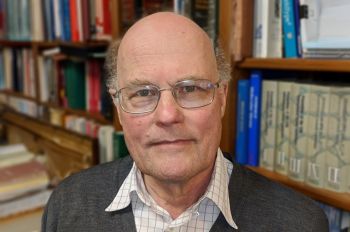IIT Stuart Undergraduate Reflects on Attending Wharton MENA Conference
IIT Undergraduate Business Council (UBC) and IIT Stuart School of Business sponsored several undergraduate students who attended the 2014 Wharton Middle East and North Africa (MENA) Conference held in Philadelphia. Lama Almansour (B.S.B.A. ‘16), UBC’s Chief Financial Officer, shared her reflections from the conference.
Wharton's 3rd MENA Conference, held April 12, 2014, on Wharton's campus at the University of Pennsylvania was impressive. The day-long conference focused on "Unlocking the Region's Potential," by bringing together some of the Arab world’s leading players to discuss its rapidly-changing business climate.
A series of panelists presented initiatives and approaches to venture capital, impact investing, private equity, and entrepreneurship, while others addressed privatization, politics, business policy, infrastructure, and education.
Nassef Sawiris, CEO of OCI N.V and Egypt’s richest man, and his company have committed $3 billion in projects in the U.S. In addition to numerous construction projects in Egypt, OCI states it is now the largest merchant producer in the U.S and among the world’s largest nitrogen fertilizer producers. Sawiris discussed the opportunities that brought OCI to the U.S., and his outlook on the natural gas industry. He also discussed Egypt and its evolving political situation. Though he predicts the country’s turbulence will continue until the summer, there are sectors right now that are still attracting investors. OCL has several branches in most of Arab countries like Egypt, Libya, and Syria, so he talked about how in Egypt, his company has dealt with challenges in the past couple of years and how they’ve been responding to crises for the past 12 years. He considers it’s a good training ground, also OCI's cement plant in Aleppo continues to operate today, even if at 30% capacity.
Another speaker was Dr. Freddie C. Baz, General Manager and Group Chief Financial Officer and Strategy Director for Bank Audi, who emphasized the need to seize opportunities, take high risks to gain high profits, and yet allow time to yield returns. Despite the disturbance of the last three years, Audi has grown in Egypt and even maintained operations in Syria.
Another speaker, Reem Asaad, is a Saudi Arabian financial advisor and writer based in Jeddah. She has 12 years of corporate experience in investment management and finance, she reminded us that change is possible through perseverance and effort. She discussed how in the past, women in Saudi Arabia were deprived of their simple rights like working and driving. She explained how thousands of jobs have opened to Saudi women in the last five years, with many women being paid equally as their male counterparts. She asserted that economic change causes social change, and several panelists confirmed the rising presence of women entrepreneurs in the MENA region, especially given the flexibility in hours and location of the digital sphere.
Panelists also frequently mentioned the need to provide better educational and healthcare services; Dr. Sherif Kamel of the American University in Cairo, Salah Khalid of Alexandria Trust, and Dr. Safwan Masri of Columbia Global Centers all called upon Wharton students and attendees to unite in their efforts and do more for our communities by developing skills that respond to the market's needs.
In sum, the panelists concluded that the stabilization, improvement, and recovery of the MENA region are the responsibility of all economic actors. Opportunities are there for those ready to tackle real problems with creative solutions. Understanding and addressing the needs of the next generation will be the key to unlocking the region's potential.
Read more about the conference from Toufik Simo (B.S.B.A. ‘17) in the independent blog Syrian Students for a Better Future.




